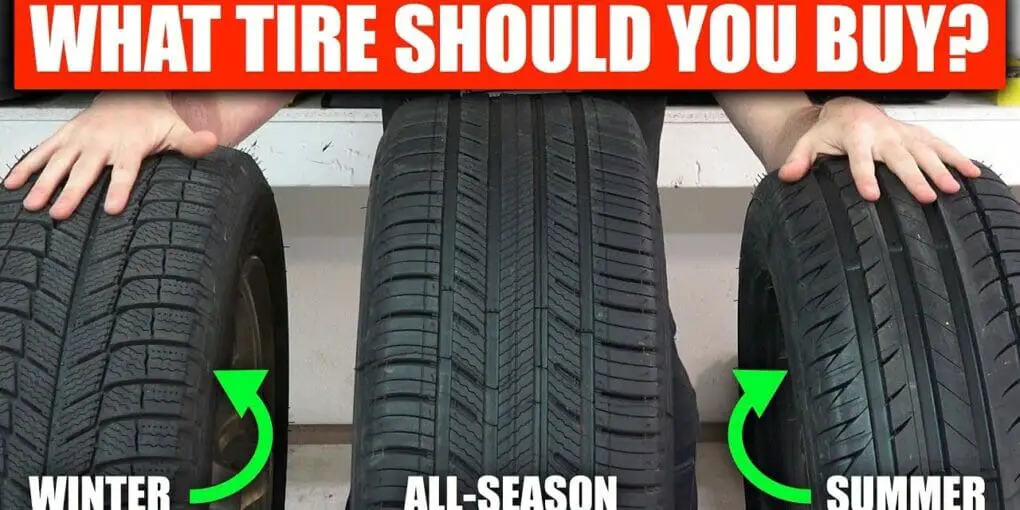How to Buy All Season Tires
If you live in an area with cold winters and hot summers, then you know how important it is to have a good set of all season tires. All season tires are designed to perform well in a variety of conditions, making them the perfect choice for year-round driving. But with so many different brands and models on the market, how do you choose the right all season tires for your car?
Here are a few tips to help you make the best decision.
- Look for a tire that has the All Season designation on it
- Find the right size for your vehicle
- Consider your driving needs and choose a tire accordingly
- Compare prices and reviews to find the best deal on all season tires
Tire Buying Guide (Interactive Video) | Consumer Reports
All Season Tires Sale Costco
Looking to buy new all-season tires? You’re in luck! Costco is currently having a sale on all-season tires.
Here are some of the best deals:Michelin Defender LTX – $169.99 per tirePirelli Scorpion Verde All Season Plus – $179.99 per tire
Goodyear Assurance Tripletred All-Season – $184.99 per tireIf you’re looking for a great deal on all-season tires, be sure to check out Costco’s current sale!

Credit: www.motortrend.com
How Do You Get All-Season Tires?
If you’re looking to buy all-season tires, there are a few things you need to keep in mind. First, all-season tires are designed to provide good traction and handling in a variety of conditions, including wet weather and light snow. However, they’re not necessarily the best choice for everyone.
If you live in an area with very cold winters or a lot of snow, you’ll probably be better off with winter tires.That said, if you decide that all-season tires are right for you, there are a few things to keep in mind when shopping. First, make sure you buy tires that are appropriate for your vehicle.
All-season tires come in different sizes and have different load ratings; if you buy too small of a tire, it could impact your gas mileage or cause other problems.Second, pay attention to the tread wear rating when choosing all-season tires. This number indicates how long the tire is expected to last; generally speaking, the higher the number, the longer the tire will last.
Of course, this is just an estimate – how long your tire lasts will also depend on how well you take care of it and how often you drive on rough roads or in adverse conditions.Finally, don’t forget to factor in the cost of all-season tires when making your decision. They tend to be more expensive than summer or winter tires (although prices vary depending on brand and size), so make sure you budget accordingly.
When Should I Buy All-Season Tires?
If you’re wondering when the best time to buy all-season tires is, the answer is typically in the late spring or early summer. This is because all-season tires are designed to perform well in a variety of conditions, including both warm and cold weather. All-season tires also tend to have a longer lifespan than other types of tires, so they can be a good investment if you plan on keeping your car for a while.
How Do I Know If My Tires are All-Season?
If you’re not sure whether or not your tires are all-season, there are a few things you can look for. First, check the sidewall of the tire. All-season tires will typically have a symbol that looks like a snowflake within a mountain.
This indicates that the tire is designed for winter driving conditions.Another way to tell if your tires are all-season is to look at the tread pattern. All-season tires will have wider grooves than summer or winter tires.
These grooves help to channel away water and slush so that you can maintain traction in wet weather conditions.If you’re still unsure, you can always consult your owner’s manual or ask a professional at your local tire shop.
Is There a Difference between All-Weather Tires And All-Season Tires?
There is a difference between all-weather tires and all-season tires. All-weather tires are designed to perform well in all types of weather, while all-season tires are designed to perform well in specific types of weather. All-weather tires are typically more expensive than all-season tires, but they offer better performance and traction in all types of conditions.
Conclusion
It’s finally that time of year again. The weather is starting to get colder and the leaves are falling off the trees. You know what that means?
It’s time to start thinking about getting your all season tires! Here are a few things to keep in mind when you’re shopping for all season tires:1. Make sure you know the size of tire that you need.
You can find this information in your car’s owner’s manual or on the placard located on the doorjamb of the driver’s side door.2. Pay attention to tire tread depth. All season tires typically have a tread depth of at least 10/32″.
3. Consider getting an all-wheel drive (AWD) vehicle if you live in an area with particularly bad winter weather conditions. This will help improve your traction and safety on icy or snowy roads.4. Don’t forget about tire pressure!


